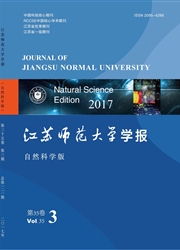

 中文摘要:
中文摘要:
运用经济联系强度、社会网络分析和功能多中心性等模型与方法,以县域为研究单元,对2002~2012年间淮海城市群的空间结构演变进行了多方面的动态测度与评价。结果表明:淮海城市群的城镇体系较为完善,空间结构较为紧密,集聚作用与扩散作用相对均衡,并已处于城市群的快速发育阶段,且有向成熟城市群过渡的趋势。其空间结构演化呈现以下特征:淮海城市群的内部联结度逐渐增强,网络结构趋于稳定;处于极化态势向均衡态势的过渡期,空间多中心性特征初现;存在着显著的核心半边缘边缘空间结构。
 英文摘要:
英文摘要:
The approaches of economic linkage model,social network analysis and functional polycentricity model are applied to examine the evolvement of the spatial structure of Huaihai Urban Agglomeration from 2002 to 2012,and the basic study unit is county.The result presents that in Huaihai Urban Agglomeration,the urban system is rela-tively complete,the spatial structure is tighter,and the agglomeration effect and the diffusion effect tend to be more balanced.So it has been at the stage of speediness development,and has a trend to be more mature.Firstly,the evolvement of the spatial structure of Huaihai Urban Agglomeration shows a networked trend.The connections a-mong the counties in Huaihai Urban Agglomeration are tighter and tighter,and the structure tends steady.Whereas the networked level is not high,the spatial contacts need to be strengthened.Secondly,Huaihai Urban Agglomera-tion is under a period of transition from the polarization to the balance,and there has been a spatial polycentricity. At last,it exists a significant core-periphery structure.In the future,according to the various natural endowment and different geographical locations,it needs to widen the cooperation areas and eliminate the administrative bul-warks,which can contribute to be networked and integrated.
 同期刊论文项目
同期刊论文项目
 同项目期刊论文
同项目期刊论文
 期刊信息
期刊信息
